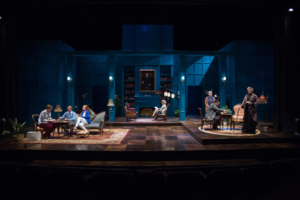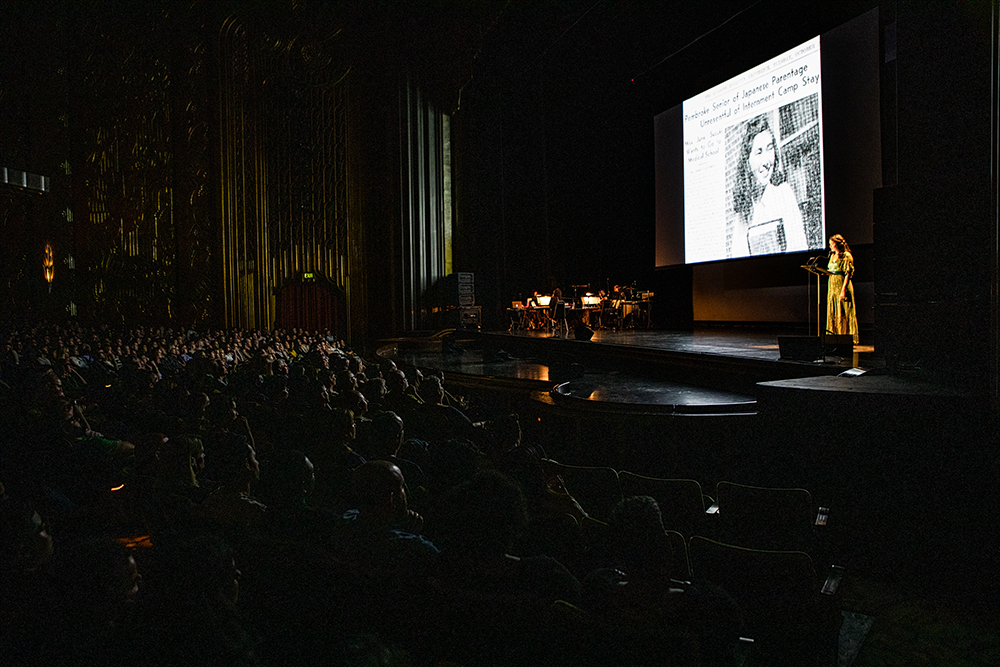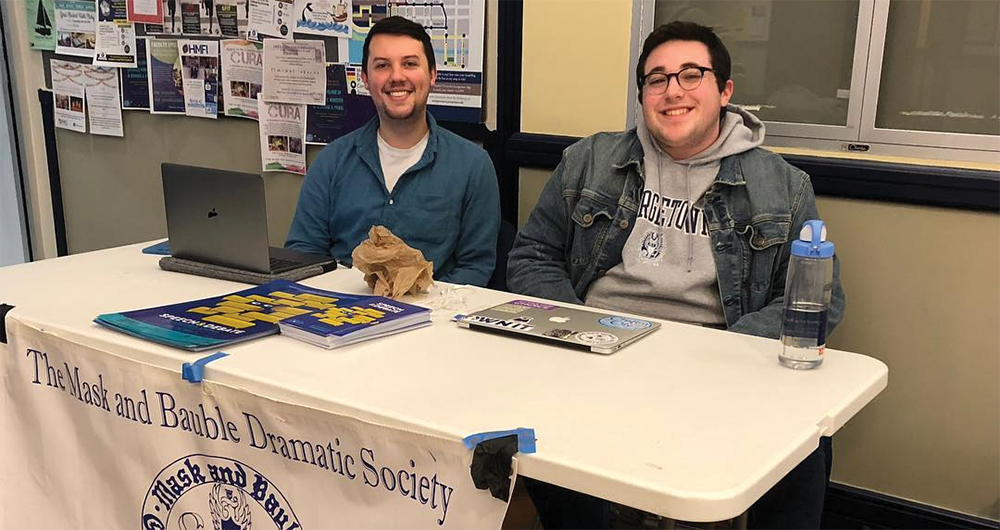From lions and warthogs on the African savannah to Italian and Puerto Rican gangs on the west side of Manhattan, reimagining Shakespeare in unusual or contemporary contexts is nothing new. “The Jewish Queen Lear” follows this well-worn path mostly successfully, examining not a medieval English King, but rather a widowed Polish and Jewish businesswoman.
A collaboration of Theater J and Georgetown University’s Theatre and Performance Studies Program of “The Jewish Queen Lear,” originally written in 1898 by Russian-American playwright Jacob Gordin, marks the world premiere of Nahma Sandrow’s English translation. The production is part of a larger effort by Theater J, which is a nationally-renowned theater group that celebrates the Jewish experience with the goal of highlighting and honoring their underrepresented stories.

Told across the typical five-act Shakespearean structure, “Lear” is the story of a wealthy but extremely nonconfrontational Mirele Efros, played by Valerie Leonard, and her devoted sons. Mirele and her sons descend into strife when her eldest marries the daughter from a low-status family, which nastily tears everything she loves in life from her. Losing her favorite chair, her business and even her children, Mirele eventually relents, sacrificing to protect her family and servants that she deeply loves.
While the story is timeless and engaging, even with the lack of murder and madness present in the source material, the book sometimes shows the limitations of translation. The dialogue too frequently switches from modern slang to Elizabethan syntax, like “I come to you to say be well,” without rhyme or reason. And the scene-setting monologue that breaks the fourth wall at the beginning of each act also grows tedious by the fifth time around. The script certainly has its moments, though: In response to the daft father-in-law’s comment that “It’s raining — it’s a sign there will be good luck,” Mirele sharply retorts, “When it rains, it’s a sign there will be mud.”
Although the production was led and directed by Theater J, Georgetown students reveal the excellence of Georgetown’s acting community in “Lear.” Healy Knight (COL ’20) plays convincingly as the prickly and bratty Shenydele, whose passive-aggressive, and occasionally violent, antics perfectly mask the impoverished daughter-in-law’s fears of suffering at the hands of Mirele’s elitism. Christopher Warren (COL ’20) also provides a stellar performance as the kind-hearted but pliable, eldest son, Yosele.
Georgetown’s evident talent is not the only factor making the pricy admission worthwhile; the true head-turner of the production is Theater J’s Valerie Leonard in the title role, whose commanding presence prods and guides the show. Every moment that Leonard takes the stage, audiences will be compelled to appreciate the careful consideration she puts into her every word and movement.
While the acting and staging shine throughout the show, “Lear” does not make every one of its marks. Oftentimes the play feels torn between its Shakespearean inspiration, its 19th-century origins and its modern production. Take the costumes as an example. The actors dress in everything from skinny jeans and tank tops to shawls to elaborately embroidered, 19th-century gowns, seemingly without much conscious intention. Likewise, the parlor where most of the play takes place is similarly muddled, mixing Ikea desks on sale for $89.99 and greasy pizza boxes with grand fireplaces and Victorian antique furniture in a hall seemingly suited for the Vanderbilts.
Yet, in spite of some script and visual oddities, “The Jewish Queen Lear” proves entertaining and engaging throughout its entire duration. For any lovers of Shakespeare’s works, Jewish theater or juicy family drama, this play should not be missed.



















